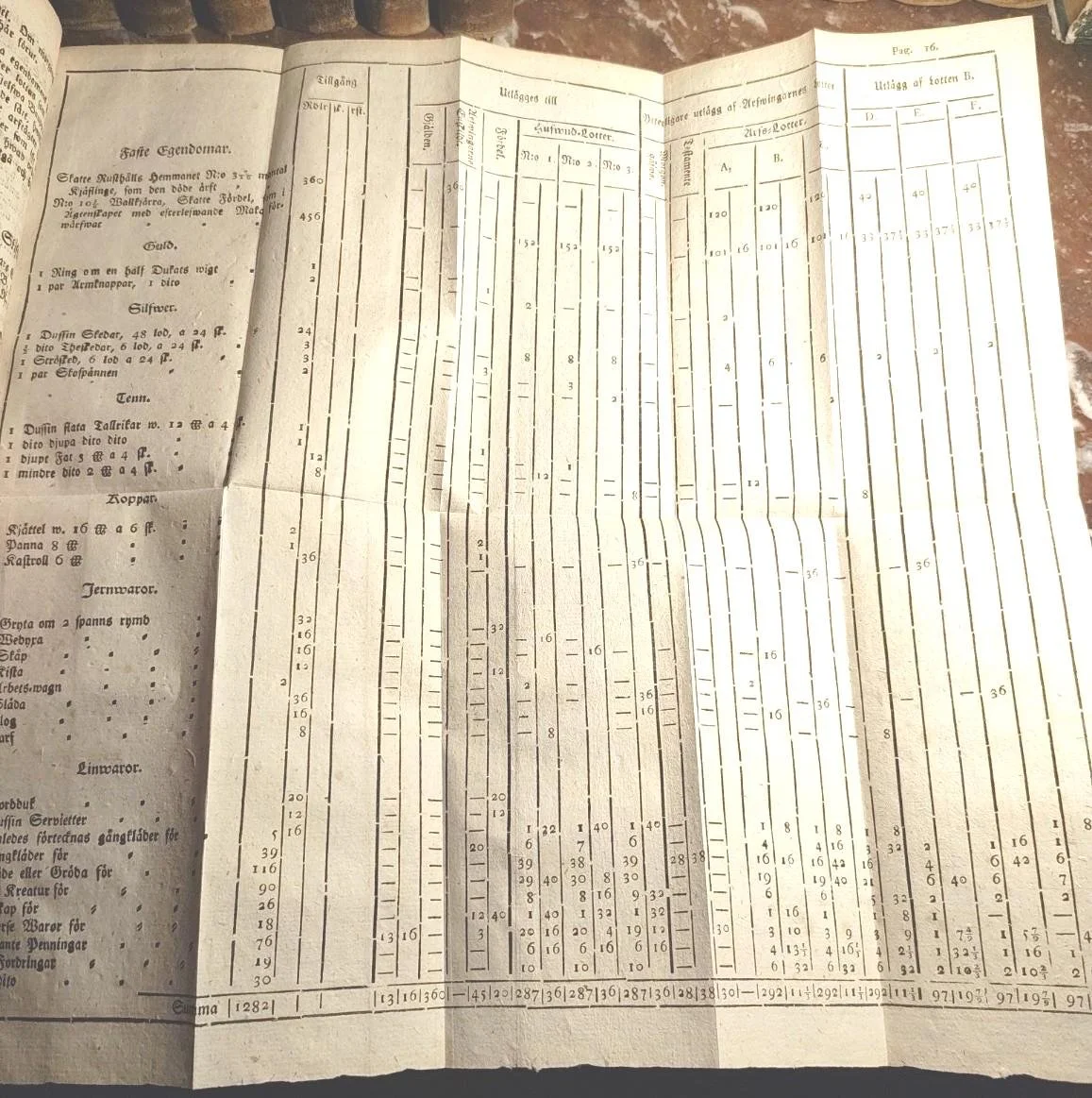 Image 1 of 9
Image 1 of 9

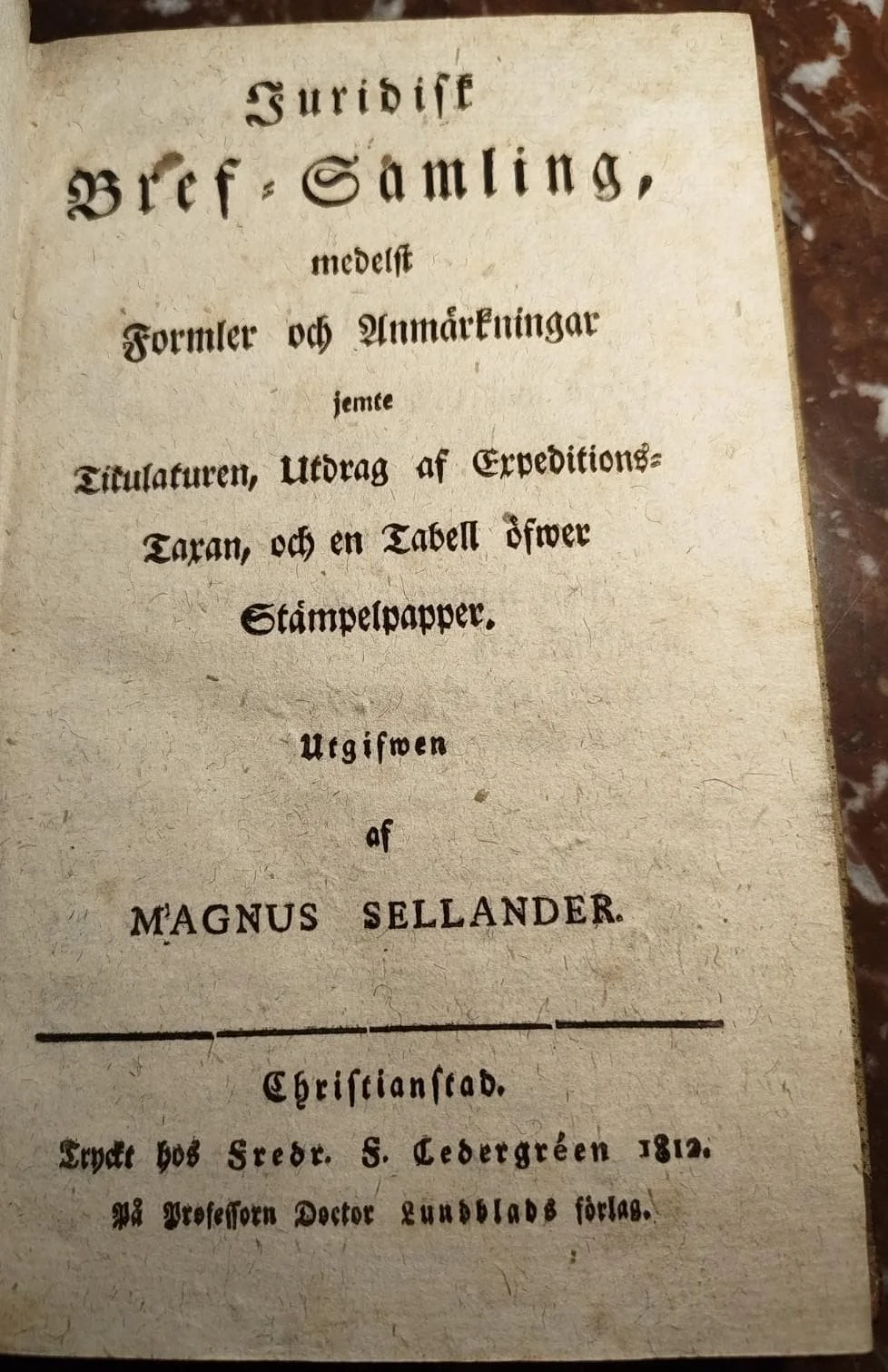 Image 2 of 9
Image 2 of 9

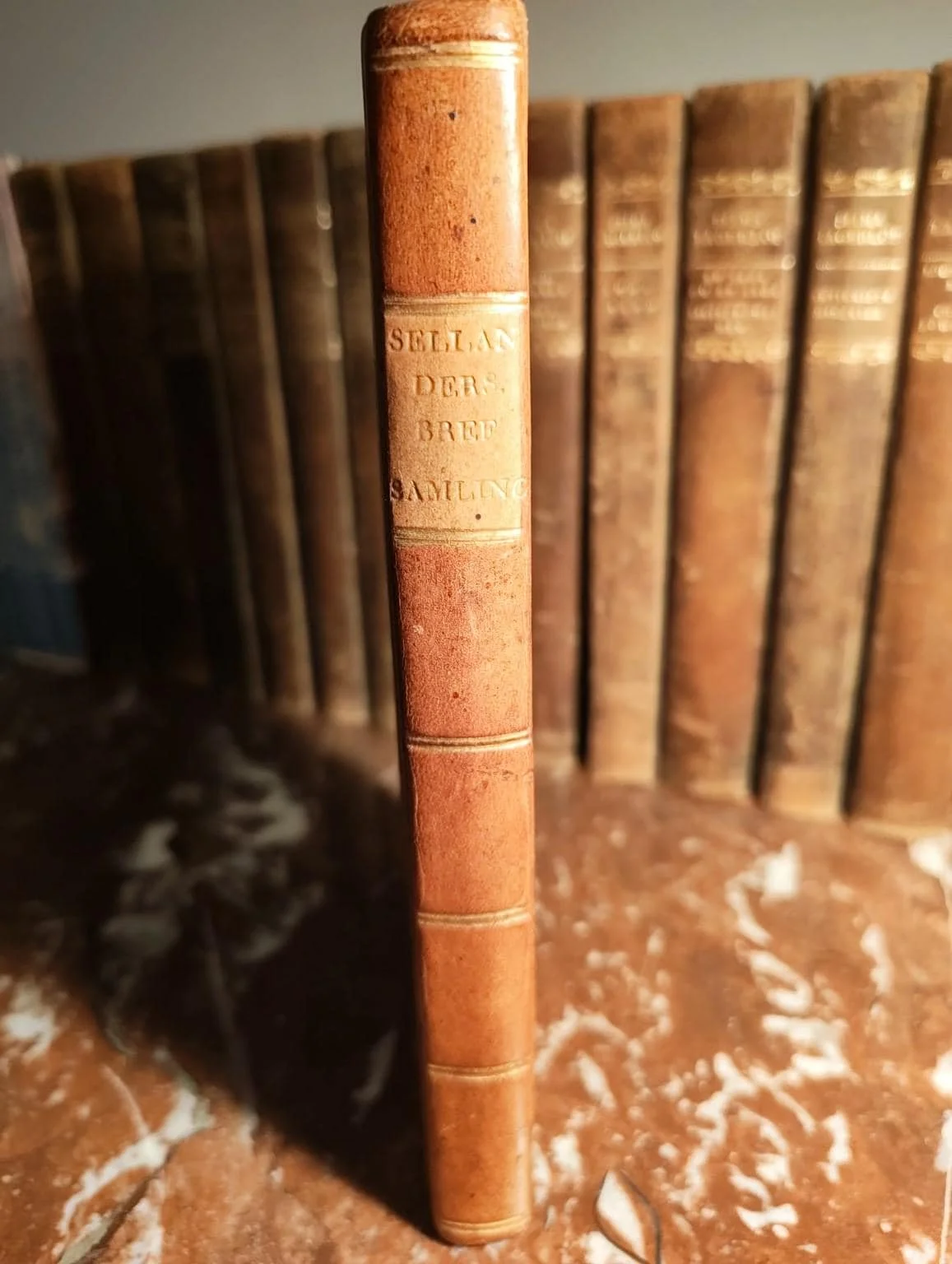 Image 3 of 9
Image 3 of 9

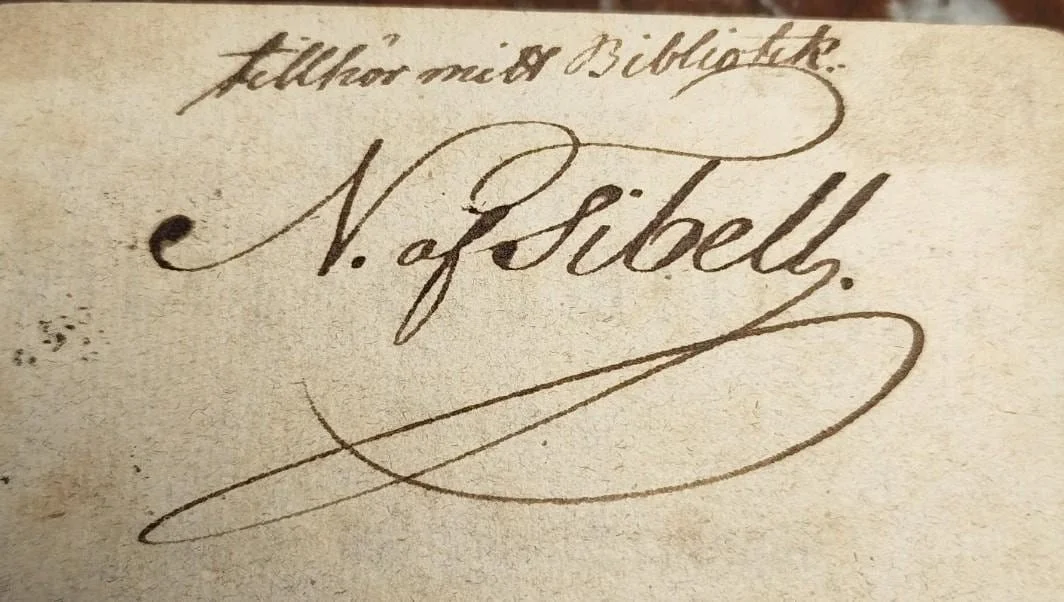 Image 4 of 9
Image 4 of 9

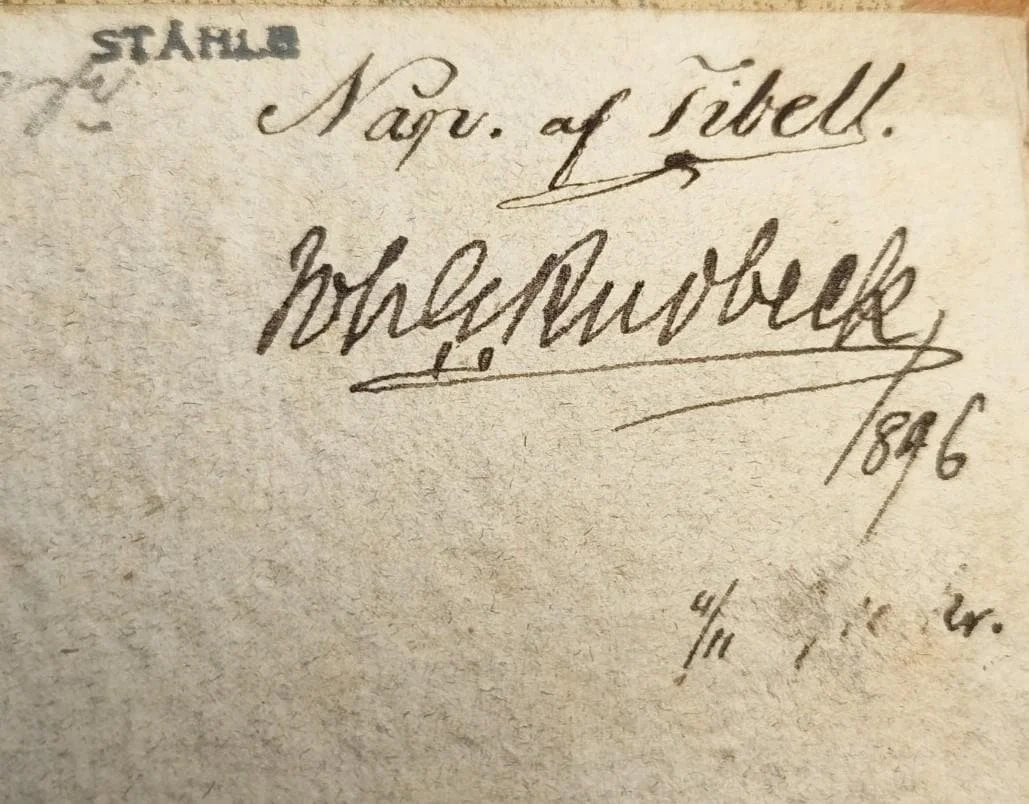 Image 5 of 9
Image 5 of 9

 Image 6 of 9
Image 6 of 9

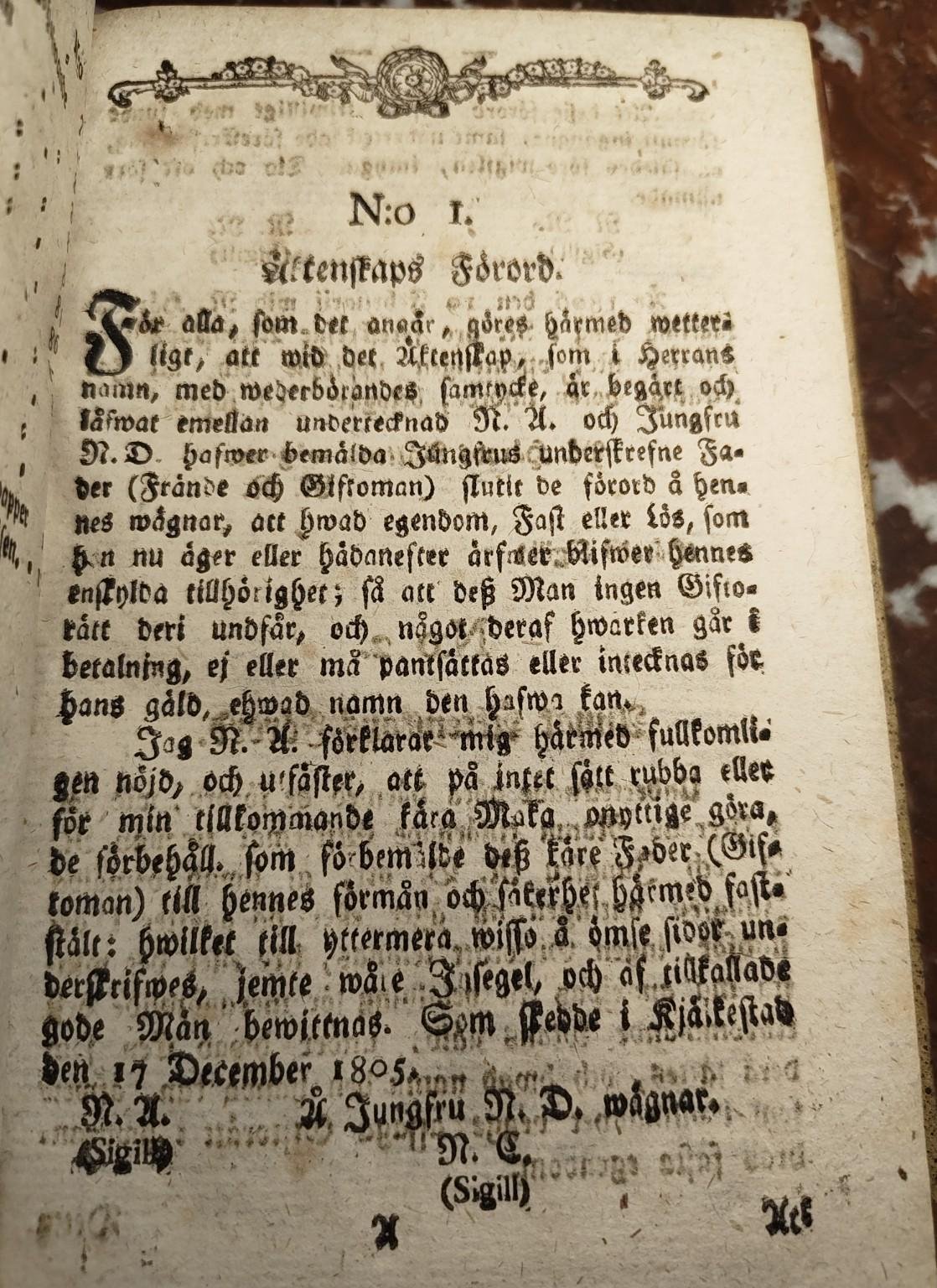 Image 7 of 9
Image 7 of 9

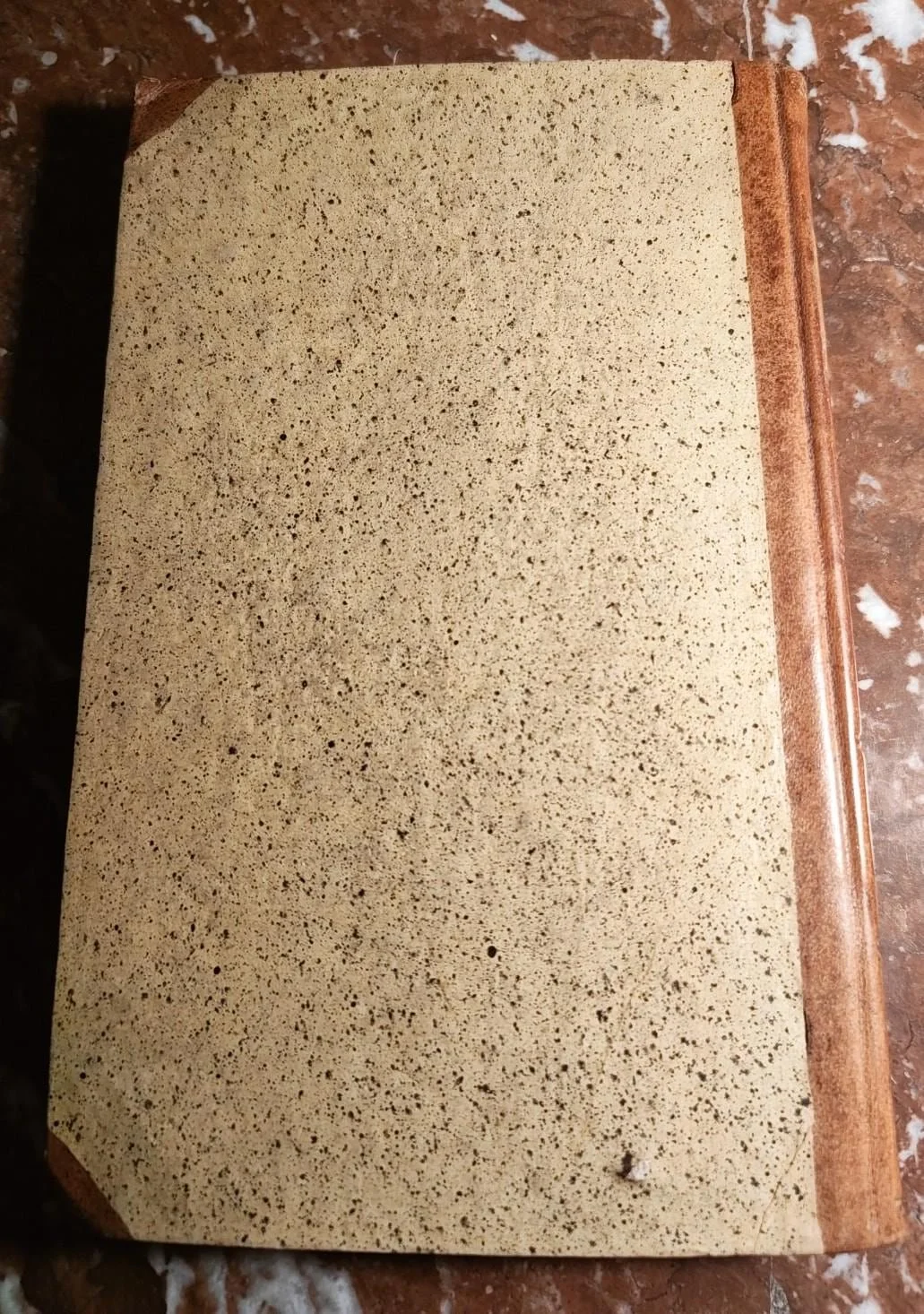 Image 8 of 9
Image 8 of 9

 Image 9 of 9
Image 9 of 9










Juridisk Bref-Samling. Magnus Sellander
This 1812 edition of Juridisk Bref-Samling offers a rare and revealing window into Swedish legal practice during the early nineteenth century. Compiled by Magnus Sellander and printed in Christianstad by S. Cedergrén, the volume served as a practical handbook for lawyers, clerks, and estate managers across the kingdom.
Its contents range from formal templates to explanatory notes, reflecting the administrative culture of Sweden in the decades following Gustavian reform.
A working manual of law and administration
The handbook gathers the most essential legal forms of its time, including marriage contracts, probate inventories, wills, guardianship accounts, promissory notes, bills of sale, and a variety of other official documents. Each is presented with accompanying instructions, making the volume both a pedagogical tool and a professional reference.
Particularly notable is the large fold-out table for probate and inheritance settlements. This sheet is frequently missing from surviving copies, and its presence here underscores the completeness of the volume.
Noble provenance across two distinguished families
The book’s ownership history significantly enhances its scholarly and collecting appeal. An inscription records that it belonged to Nils af Sibell, a member of the Swedish noble family af Sibell, whose libraries were known for their breadth during the late eighteenth and early nineteenth centuries.
A later signature from 1896 places the book in the library of the Rudbeck family, one of Sweden’s most prominent noble lineages, descending from the celebrated natural philosopher Olof Rudbeck the Elder. This dual provenance ties the volume directly to two historic Swedish households.
Format and condition
The volume is bound in contemporary half leather with speckled paper boards, the spine decorated with gilt bands and a clear title piece. Wear is minimal, and the binding retains both its strength and aesthetic coherence. Internally the pages are clean with only light spotting consistent with age. The fold-out probate table survives intact and complete.
Significance
This handbook embodies several layers of historical interest.
It reflects early nineteenth century Swedish legal culture, documents administrative practice through its templates and forms, and preserves a rare fold-out table essential for estate settlement. Its movement through two noble libraries enriches its material biography.
For collectors of Swedish legal history, Scandinavian administration, or aristocratic provenance, this is an unusually complete and culturally resonant volume.
This 1812 edition of Juridisk Bref-Samling offers a rare and revealing window into Swedish legal practice during the early nineteenth century. Compiled by Magnus Sellander and printed in Christianstad by S. Cedergrén, the volume served as a practical handbook for lawyers, clerks, and estate managers across the kingdom.
Its contents range from formal templates to explanatory notes, reflecting the administrative culture of Sweden in the decades following Gustavian reform.
A working manual of law and administration
The handbook gathers the most essential legal forms of its time, including marriage contracts, probate inventories, wills, guardianship accounts, promissory notes, bills of sale, and a variety of other official documents. Each is presented with accompanying instructions, making the volume both a pedagogical tool and a professional reference.
Particularly notable is the large fold-out table for probate and inheritance settlements. This sheet is frequently missing from surviving copies, and its presence here underscores the completeness of the volume.
Noble provenance across two distinguished families
The book’s ownership history significantly enhances its scholarly and collecting appeal. An inscription records that it belonged to Nils af Sibell, a member of the Swedish noble family af Sibell, whose libraries were known for their breadth during the late eighteenth and early nineteenth centuries.
A later signature from 1896 places the book in the library of the Rudbeck family, one of Sweden’s most prominent noble lineages, descending from the celebrated natural philosopher Olof Rudbeck the Elder. This dual provenance ties the volume directly to two historic Swedish households.
Format and condition
The volume is bound in contemporary half leather with speckled paper boards, the spine decorated with gilt bands and a clear title piece. Wear is minimal, and the binding retains both its strength and aesthetic coherence. Internally the pages are clean with only light spotting consistent with age. The fold-out probate table survives intact and complete.
Significance
This handbook embodies several layers of historical interest.
It reflects early nineteenth century Swedish legal culture, documents administrative practice through its templates and forms, and preserves a rare fold-out table essential for estate settlement. Its movement through two noble libraries enriches its material biography.
For collectors of Swedish legal history, Scandinavian administration, or aristocratic provenance, this is an unusually complete and culturally resonant volume.

